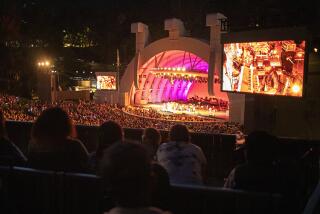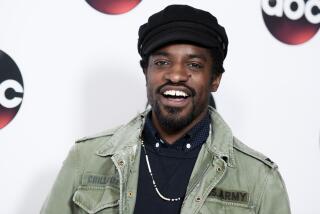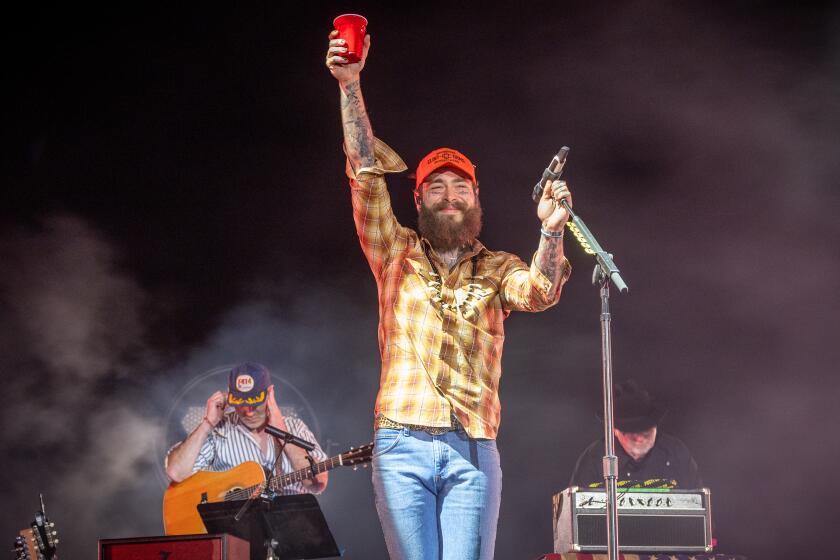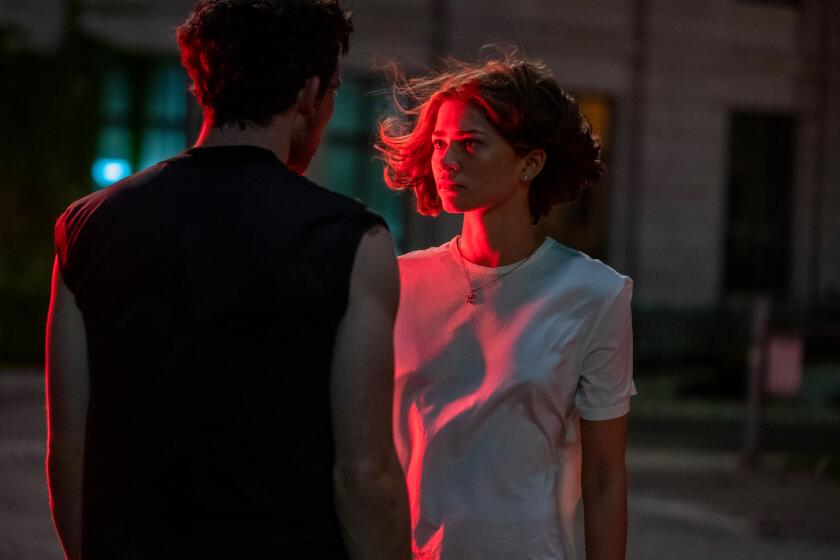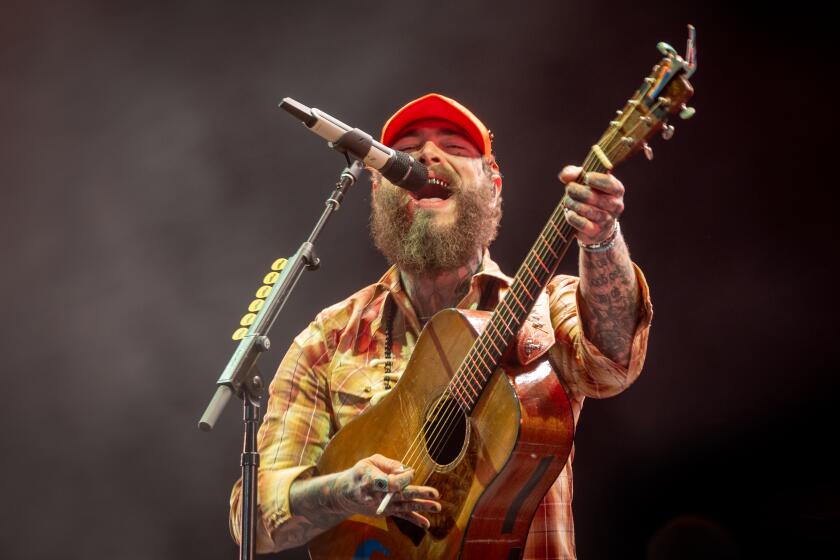California Sounds: L.A.’s Kamasi Washington goes ‘Live at the Apollo’
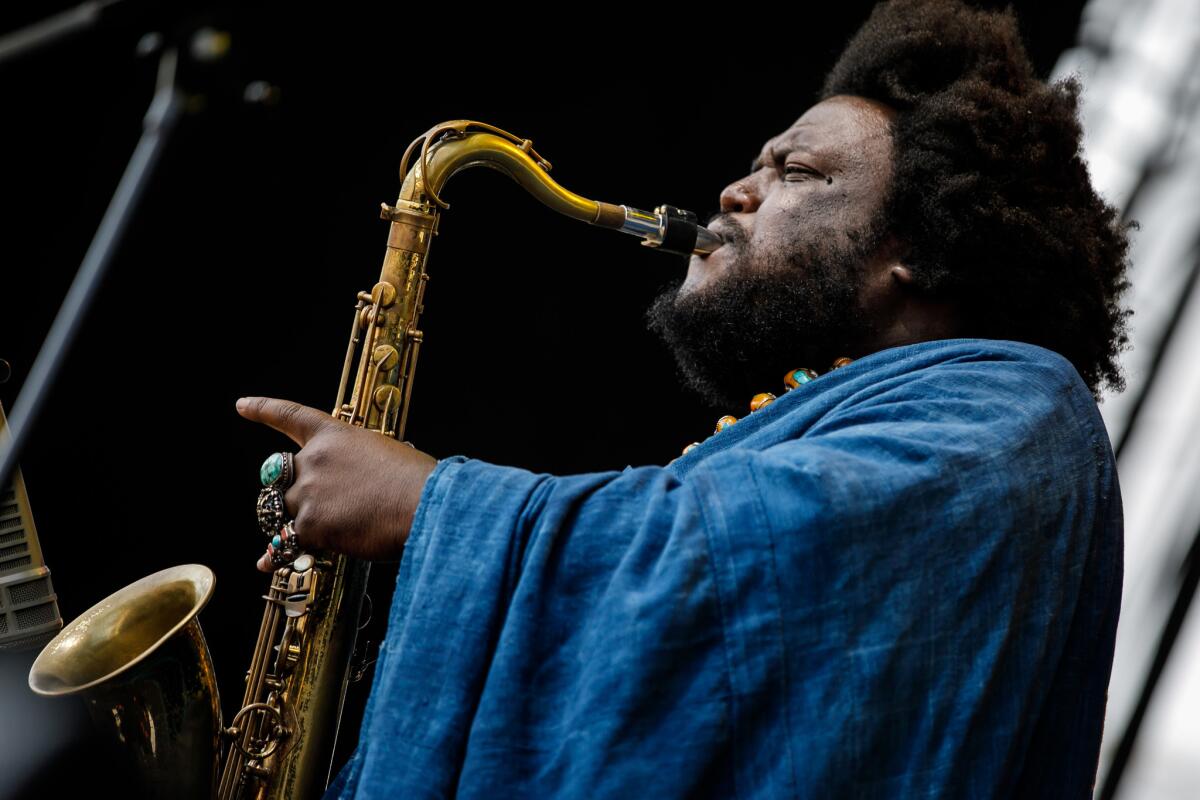
Kamasi Washington, “Live at the Apollo” (Amazon Prime)
Last year when the saxophonist Washington brought his overpowering band to the Apollo Theater in Harlem for the first time, a crew was there to document it. The resulting 90-minute film, which came out last week on Amazon Prime, captures the energy that has made the Los Angeles tenor player one of the key jazz bandleaders and players of the last decade.
Five years after Washington unveiled his career-defining debut, “The Epic,” at the Regent in downtown Los Angeles, we see the artist on the other coast, walking the Apollo’s stage during sound check and pausing to stare at the empty auditorium.
A student at UCLA’s famed school of ethnomusicology, Washington appreciates the Apollo’s place in black music history. Those who have played at the Apollo since it became a performance venue in 1934 include Duke Ellington, Dizzy Gillespie, Sister Rosetta Tharp, Thelonius Monk, James Brown, Miles Davis, Otis Redding, the Soul Stirrers, Aretha Franklin — and pretty much every important black artist since.

“To be invited to come and play at the Apollo is to be asked to share your music on one of the greatest stages that there is,” Washington says near the film’s opening. “It’s to join a lineage of musicians that have shaped the world and what it is.”
The conversation is one of many non-performance scenes that takes the camera away from the band’s searing music and into Washington’s experience during the event. Brief scenes find the artist backstage just prior to greeting the crowd or buying a dashiki before the set at the Malcolm Shabazz Harlem Market. Another scene follows Washington as he explores the National Jazz Museum. When Washington comes upon Ellington’s piano, he’s invited to play it. Taking a seat, Washington gently works through a few chords and melodies, and as he does you can almost feel a spiritual gust move through the room.
Each cutaway scene informs the music. We meet some of the band’s dozen-plus players, many of whom have grown up alongside Washington in the city’s jazz scene. While introducing Cameron Graves during the performance of “Street Fighter Mas” (at 2:35 in the above YouTube clip), Washington tells the crowd about practicing all day in order to keep up with the pianist. Graves then moves through a sublimely compact, densely packed solo that illustrates his mastery.
This L.A. business pressed discs immortalizing Black Flag, 2Pac and N.W.A. - and ordinary people too.
Elsewhere, trombone player and longtime Washington collaborator Ryan Porter pushes through nuanced solos that weave through percussive measures — courtesy of two drummers and two other percussionists — before easing back into the fabric. The vocalists Dwight Trible and Patrice Quinn offer harmonic, oft-wordless arrangements. Keyboardist Brandon Coleman’s synth playing across the set commands the camera. During “Re Run,” he makes it scream like Eddie Van Halen’s guitar. During the intro to “Show Us the Way,” his synth stabs through the cacophony with ray-gun pew-pew shooting sounds.
Introducing “Truth” as a celebration of diversity, Washington tells the crowd that they’ll hear five different melodies at once “as a metaphor for just how much love we can create when we all come together.” The interplay that follows is a lesson in how complex ideas can become fluid musical expressions.
Best, the visually stunning cinematography is equaled by the sound production. Precisely recorded and mixed, the concert rewards not only screen-centered viewing, but audio-only listening.
More 'California Sounds'
More to Read
The biggest entertainment stories
Get our big stories about Hollywood, film, television, music, arts, culture and more right in your inbox as soon as they publish.
You may occasionally receive promotional content from the Los Angeles Times.

